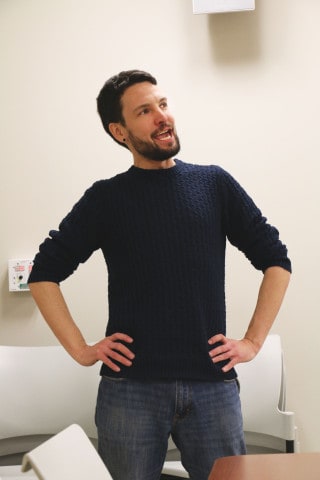Healthy Bodies, Healthy Minds brought students a week of alternative views and ideas on eating, exercise and body image.
Having taken place Mar. 2 – 6, Healthy Bodies, Healthy Minds hopes to have a lasting effect on students at the University of Saskatchewan.
Co-ordinated between the U of S Students’ Union, the Women’s Centre and Peer Health Mentors, Healthy Bodies, Healthy Minds aimed to expose U of S students to alternative and traditional ideas about health through a number of workshops and events.
Workshops were tailored to cater to varying interests. Alternatives like Ayurveda — a form of traditional medicine from India — and naturopathic eating focused on the food that we eat and how it affects us. Different forms of exercise such as hula hooping and acroyoga, prove that there are ways to be active other than just hitting the gym. Body casting, creating a plaster cast of a body part, focused on promoting healthy body image and self-esteem.
Event organizers Dylan Lambi-Raine and Christopher Brabant planned Healthy Bodies, Healthy Minds to raise awareness about alternative healthy lifestyles.

Ryan Bradshaw ran a poetry workshop with Shanda Stefanson (not pictured) for Healthy Bodies, Healthy Minds.
“We do hear a lot of narratives of ‘It’s really important to exercise’ or ‘It’s really important to eat well,’ but what does that mean?” said Lambi-Raine, who is also the coordinator of the USSU Women’s Centre.
Brabant, the mental health facilitator for Peer Health Mentors, drew upon his own beneficial experiences with traditional health practices.
“I take Chinese martial arts and I’ve always wanted to bring them into the school because I know the knowledge that I have gained from there has supplemented my actual work to a great extent,” said Brabant.
With these ideas in mind, the pair set out to bring alternative ideas about health and wellness to the U of S community.
Accessibility was another important factor of Healthy Bodies, Healthy Minds. All of the workshops were free to participants and were held at a variety of locations throughout campus.
“It’s not actually very common that people get to gain these knowledges for free,” said Lambi-Raine. “It’s hard to try out without investing a lot of money in it, so it was really important just essentially for that — to make healthy lifestyles accessible.”
Being healthy is about more than just eating and exercise, though. It’s also about mental well-being and self-esteem.
“It’s often in society that healthy body image or mental health is separate from our physical self and our physical health,” said Lambi-Raine. Workshops focused on mindful meditation and body casting sought to improve the mental health of those that participated.
Healthy Bodies, Healthy Minds placed a great deal of importance on the idea that everyone can be healthy in the ways that work best for them.
“There’s a thousand different ways to be healthy and we want to explore and show people that there are options,” said Brabant.
“We want people to feel empowered and beautiful, regardless of where they line up to societal expectations,” added Lambi-Raine.
Healthy Bodies, Healthy Minds also received contributions from other individuals. Shana Mclean of the Physical Activity Complex, Tracy Everitt from the College of Pharmacy and Nutrition and Rita Hanoski of Student Health Services all helped with booking facilities for workshops. The Healthy Bodies, Healthy Minds webpage was created and maintained by Craig McNaughton.
Volunteers from both the Women’s Centre and Peer Health Mentors also provided assistance.
—
Photo: Caitlin Taylor
Leave a Reply